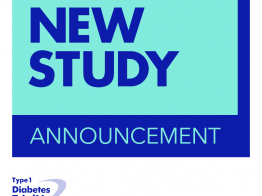|
Denver’s Max Hostetter, 22, says participating in TrialNet’s newest study is like peeking behind the curtain of T1D research into the future-- something people rarely get to do.
He is the first to join TOPPLE (Tolerance Using Plasmid in People with Type 1 Diabetes), a Phase 1 study testing a new plasmid therapy in adults (18-45) diagnosed in the past 48 months.
Called NNC0361-0041, the plasmid carries DNA into cells where it can communicate with the immune system. Earlier studies show the treatment might be able to retrain the immune system to stop its attack on insulin-producing beta cells.
If this study results in no safety concerns, TrialNet plans to conduct a larger study with people at high risk to see if the same treatment can slow down or stop the disease from progressing to clinical diagnosis.
“It’s a really unique study,” Max says. “I’d not heard of anything like it. I’ve enjoyed asking questions and learning about the pathways they’re looking at.”
Max works as an automation engineer at a life sciences supply company that provides integrated systems for biological research. Prior to that, he worked 3 years in a developmental biology lab before graduating with his degree in chemical engineering from Colorado State.
You could say research is second nature to Max. But T1D wasn’t. He was diagnosed in August 2020 during a physical for his new job. He had no symptom or immediate family members with T1D.
A friend from high school, who has lived with T1D most of her life, recommended the Barbara Davis Center for Diabetes at University of Colorado for Max’s treatment.
“My endocrinologist is there, and I asked to be put on list for any studies coming up,” explains Max. “The study coordinator emailed me in December, and we set up a screening visit for February.”
Max started the study in March and has had the first 5 of 12 weekly injections. “For the first one, I had a 48-hour stay over,” says Max. “The second visit took 5 hours. I’m working remotely, so I can work from the site.”
“Everyone I’ve worked with has been fantastic. A lot of staff at Barbara Davis have T1D or relatives with T1D. This is a way I can help this community – even if I’m not in the medical field. It’s great to be able to help.”
We think Max is doing more than peeking into the future of T1D research. He’s helping shape it!
To learn more about this study or to find out if you qualify for screening, visit www.trialnet.org/topple.
|
